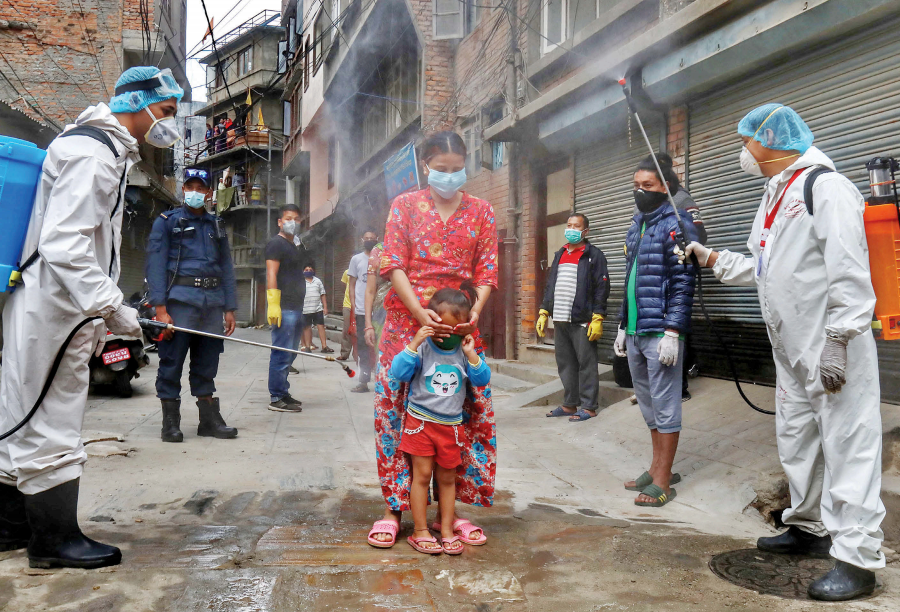National
Social media users react to people being sprayed with disinfectant and criticise authorities
Spraying or introducing bleach or another disinfectant into your body will not protect you against Covid-19 and can be dangerous, UN health agency says.
Pawan Pandey
On Sunday, municipal workers sprayed disinfectant on people including children at a relief distribution centre in Ombahal, Kathmandu.
The video of the incident, which was shared on social media, quickly generated criticism from members of the public.
[Read: Coronavirus disease (COVID-19) advice for the public: Myth busters]
“What has happened to the government? Who gives such advice? Is this the government’s preparation? This is wrong,” said a user in a tweet.
“The local government and local community should stop showing their expertise,” tweeted another user. “The person who is spraying the disinfectant is wearing PPE,even the community people are wearing masks and gloves while spraying chemicals to children and woman. This is a serious offence. STOP!!!!”
Nepal so far has reported 75 Covid-19 cases with no fatalities. Sixteen people have returned home after recovery. But experts have been calling for expanding tests, saying the number of cases could be higher. Meanwhile, the government has been facing criticism for its poor handling of the pandemic. The government has imposed a nationwide lockdown since March 24, but it has failed to use the lockdown to step up measures to stop the possible spread, experts have warned.
According to the World Health Organisation, spraying or introducing bleach or another disinfectant into your body will not protect you against Covid-19 and can be dangerous.
“Do not under any circumstances spray or introduce bleach or any other disinfectant on your body,” the UN health agency says. “These substances can be poisonous if ingested and cause irritation and damage to your skin and eyes.”
Some users even likened the Ombahal video to one incident in India in March.
A video of migrant workers in India being sprayed with disinfectant chemicals had gone viral.




 9.7°C Kathmandu
9.7°C Kathmandu














